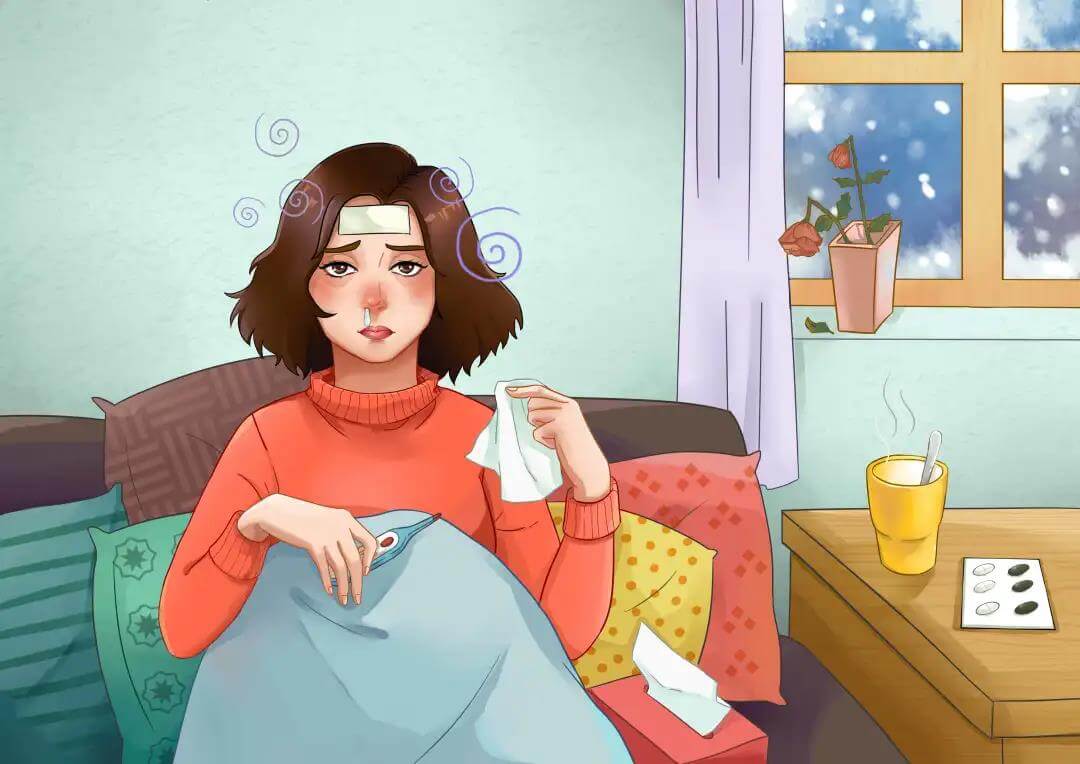Respiratory illnesses and gastrointestinal infections are more common in colder months. People are staying indoors more often, which allows viruses to spread more easily from one person to another. Suzhou CDC calls attention to the precautions against COVID-19, influenza, and norovirus gastroenteritis.
COVID-19
Locally transmitted cases have been reported in multiple domestic areas recently. Suzhou has taken immediate preventive measures including epidemiological investigation, contacts tracing, nucleic acid testing, terminal disinfection, etc. since last Friday (November 25). All samples have tested negative for COVID-19 so far, but all residents should stay vigilant against the virus and keep up the self-protection efforts.

● Transmission:
The coronavirus can be transmitted through respiratory droplets and contacts. Aerosol transmission of the coronavirus is possible if someone is exposed to a highly concentrated mixture in an enclosed area.
● Prevention:
Do not travel to the medium-risk and high-risk areas unless absolutely necessary. Put on face masks when using public transport. Carry out 14-day health monitoring after business trips and travels.
Take proper self-protection measures, including wearing face masks, ventilating your room often, washing hands frequently, practicing social distancing, and using serving chopsticks. Avoid going to crowded, enclosed, and poor-ventilated spaces. Last but not least, get vaccinated against COVID-19.
Influenza
Influenza (flu) is a contagious and acute respiratory illness caused by influenza viruses that infect the nose, throat, and lungs. There are two main types of influenza viruses: Types A and B. The influenza B has made a comeback recently and caused illness in settings like schools.

● Transmission:
The flu viruses spread mainly by droplets made when people with flu cough, sneeze or talk. Also, an individual might get flu by touching a surface or object that has flu virus on it and then touching their own mouth, nose, or their eyes.
● Symptom:
Individuals who are sick with flu often develop symptoms including fever, headaches, muscle aches, fatigue, stuffy nose, sore throat, and cough. Some people may develop gastrointestinal symptoms such as vomiting and diarrhea. The symptoms should be over within seven days, but the coughing and general tiredness can linger two weeks or more.
● Prevention:
Getting vaccine shots can effectively reduce your risk from seasonal flu and its complications. Maintain good personal hygiene, including ventilating your room often, wearing face masks, washing hands frequently, and covering your mouth and nose when coughing or sneezing. Avoid going to crowded or poorly ventilated public places. Take medicine as directed by your doctor.
Norovirus Gastroenteritis
Winter usually has a high incidence of viral gastroenteritis. Norovirus is highly infectious to cause illness and spread through schools, care homes, and kindergartens.

● Transmission:
Norovirus is highly contagious and easily spread in water, food, and air. As the immunity is short and strain-specific, the infection can happen several times in a lifetime. Individuals of all ages can get infected and sick with norovirus. There are currently no specific antiviral drugs and vaccines for norovirus.
● Symptom:
Norovirus can cause gastroenteritis and symptoms of infection including fever, headache, vomiting, and diarrhea. Diarrhea is more common among adult patients while children are more likely to vomit after infection. Those infected usually recover within two to three days and very few patients might develop serious illnesses.
● Prevention:
Maintaining good personal hygiene is the most important and effective way to protect one from norovirus infection. Wash hands more often, especially before meals and after using the toilet.
Wash fruits and vegetables carefully before handling and eating them. Cook all food, particularly shellfish, thoroughly before consumption. Keep sick infants and children out of areas where you handle or prepare the food.

